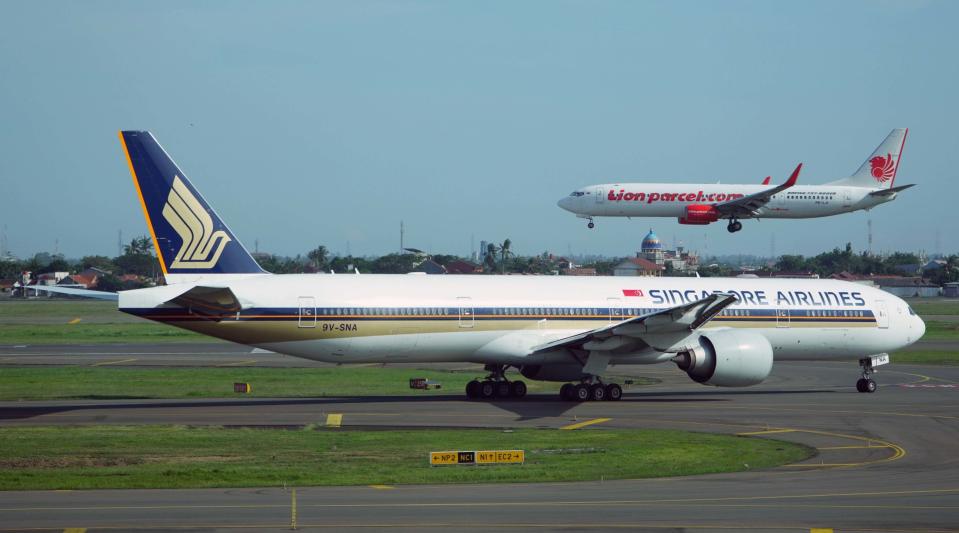SIA to purchase 1,000 tonnes of sustainable aviation fuel from Neste

Neste will deliver the blended jet fuel to Changi Airport’s fuel hydrant system in two batches — in 2Q2024 and 4Q2024.
The Singapore Airlines C6l (SIA) Group has signed an agreement with Neste to purchase 1,000 tonnes of neat Neste MY Sustainable Aviation Fuel, according to a May 6 statement.
This will make SIA and Scoot, the two airlines in the group, the first carriers to receive sustainable aviation fuel (SAF), produced at Neste’s Tuas refinery, at Singapore Changi Airport.
At present, SAF cannot be used alone; it has to be blended with conventional jet fuel at various ratios. Flights departing Singapore will be required to use a minimum blend of 1% SAF from 2026.
Neste will blend the SAF with conventional jet fuel according to the required safety specifications, and deliver the blended jet fuel to Changi Airport’s fuel hydrant system in two batches — once in 2Q2024 and again in 4Q2024.
According to SIA, this will mark the first direct supply of Neste’s SAF to airlines at Changi Airport, reinforcing their end-to-end SAF supply chain capabilities in Singapore.
This follows the completion of the expansion of Neste’s Singapore refinery in May 2023. The refinery has the capacity to produce a million tonnes of SAF each year, making it the world’s largest SAF production facility.
Neste’s SAF, which is made from 100% renewable waste and residue raw materials, reduces greenhouse gas emissions by up to 80% over the fuel’s life cycle.
Alexander Kueper, vice-president of renewable aviation at Neste, says: “We are proud that Singapore Airlines and Scoot are our first customers benefiting from our integrated supply capabilities into Changi Airport. This supply of locally produced SAF to Changi Airport is a milestone in our journey of supporting the aviation industry and governments in the region to achieve their emissions reduction goals.”
Kueper adds: “Singapore is a leading aviation hub in the Asia-Pacific region and this delivery of SAF, as well as the recently announced national SAF target, will hopefully encourage the wider adoption of SAF across the broader Asia-Pacific region.”
The Civil Aviation Authority of Singapore (CAAS) unveiled the Singapore Sustainable Air Hub Blueprint on Feb 19, introducing a SAF levy for outbound flights from 2026.
Starting May, SIA will offer 1,000 SAF Book & Claim Units (BCUs) for purchase by its corporate travellers, shippers and freight forwarders. Each BCU represents one tonne of neat SAF with its associated carbon dioxide reduction benefit.
Purchasing SAF BCUs allows corporate travellers, shippers and freight forwarders to claim the associated environmental benefits for flights related to their business travel and operations. According to SIA, this validates the demand for SAF BCUs and supports the development of the nascent SAF industry.
Lee Wen Fen, chief sustainability officer, SIA, says: “This agreement with Neste is an important milestone in the SIA Group’s journey to have a minimum of 5% sustainable aviation fuel in our total fuel uplift by 2030. Close collaboration with our partners and stakeholders, both in Singapore and globally, plays a critical role in our long-term decarbonisation goals. A more sustainable aviation industry will ensure that future generations continue to benefit from the global connectivity, economic prosperity, and people links that air travel fosters.”
See Also:
Click here to stay updated with the Latest Business & Investment News in Singapore
Singapore's sustainable aviation goals will not weigh SIA down: OCBC Investment Research
Singapore buys record amount of biofuel feedstock from China
Get in-depth insights from our expert contributors, and dive into financial and economic trends

 Yahoo Finance
Yahoo Finance 